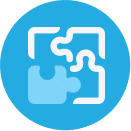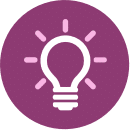DRAFT PAGE – UNDER CONSTRUCTION
People with disabilities want the same financial knowledge and skills as everyone else. Financial independence can be hard for people who have intellectual or developmental disabilities (IDDs) because of the cost of medical expenses and lack of competitive, integrated employment. There is also a lack of accessible information on financial literacy. Despite these challenges, people with disabilities can build financial empowerment with support.
According to statistics from 2021, the poverty rate for people with disabilities in Arkansas was 28.5% compared to the 12.9% poverty rate for people without disabilities. This is for multiple reasons including having a harder time getting a job, medical expenses, and the lack of financial literacy resources made for people with disabilities.
This page was put together because everyone needs resources to gain financial knowledge and skills. We hope that the resources below will help Arkansans with disabilities in their financial empowerment journey.
Banking
Short blurb about banking will go here.
How Do I Select a Bank? Drop down to reveal a short answer plus any resources we have
How Do I Open an Account? Drop down to reveal a short answer plus any resources we have
What Different Bank Accounts Mean
Online Banking
Working While Receiving Benefits
Short blurb here
What if I want to save more than $2,000 for future goals, but can’t because of resource limits? Drop Down menu where AR ABLE could be briefly discussed and linked to
SSA How to Report: Report changes to work and income | SSA
How can I better understand the effect work will have on my benefits? Drop Down menu with a short blurb and link to Project AWIN at SOURCES
Credit
What is Credit?
Why is Credit Important?
How do you Build Credit?
Basics of Credit Cards
Credit Counseling/Repair
Budgeting
Basic Guide
Planning for Future
Making Goals
Saving
Taxes
What are taxes?
How can I file taxes?
Financial Safety Tips
Who can safely have access to your personal financial information?
Saving
Saving money is simply putting aside an amount of money now to use later. A person may do this in different ways: deposit this “saved money” in a bank account, put cash into a locked safe, or invest the money in the stock market.
A savings account is a secure place to keep your money for future use. Some people use them to save up for a vacation or to make an expensive purchase.
Stock Market (Investments)
What is investing?
How can you invest?
Car and Home Ownership
Home & car buying are big financial goals many people have – I am not sure what category they should go in though as it also involves having credit. Maybe we create a separate section about goals instead of putting goals in budgeting? Or separate budgeting into various sections?
Car Loans
Home Ownership/Mortgages
Mortgages and grants to help people with disabilities buy a home (msn.com)
RESOURCES / LINKS
Free Prepared Taxes (by the United Way): https://myfreetaxes.com/
Tax Prepared with ASL: https://deaftax.com/
Financial Summits: https://www.nationaldisabilityinstitute.org/financial-inclusion-summits/
IDA: https://humanservices.arkansas.gov/divisions-shared-services/temporary-assistance-for-needy-families/individual-development-account-ida/
https://www.irs.gov/publications/p907
https://www.atticus.com/advice/general/disability-tax-credits-and-deductions
https://www.irs.gov/publications/p907
Financial Resources for People with Disabilities (nationaldisabilityinstitute.org)
The Arc: Future Planning 101: https://futureplanning.thearc.org/pages/learn/future-planning-101 has a link at the bottom for simple language, also has a plain language info for ABLE Build Your Future Plan
CFPB also has some resources:
https://www.consumerfinance.gov/consumer-tools/educator-tools/your-money-your-goals/companion-guides/#anchor_disabilities
https://files.consumerfinance.gov/f/documents/cfpb_ymyg_focus-on-people-with-disabilities.pdf
Pennsylvania Assistive Technology Foundation: https://patf.us/what-we-do/financial-education/



